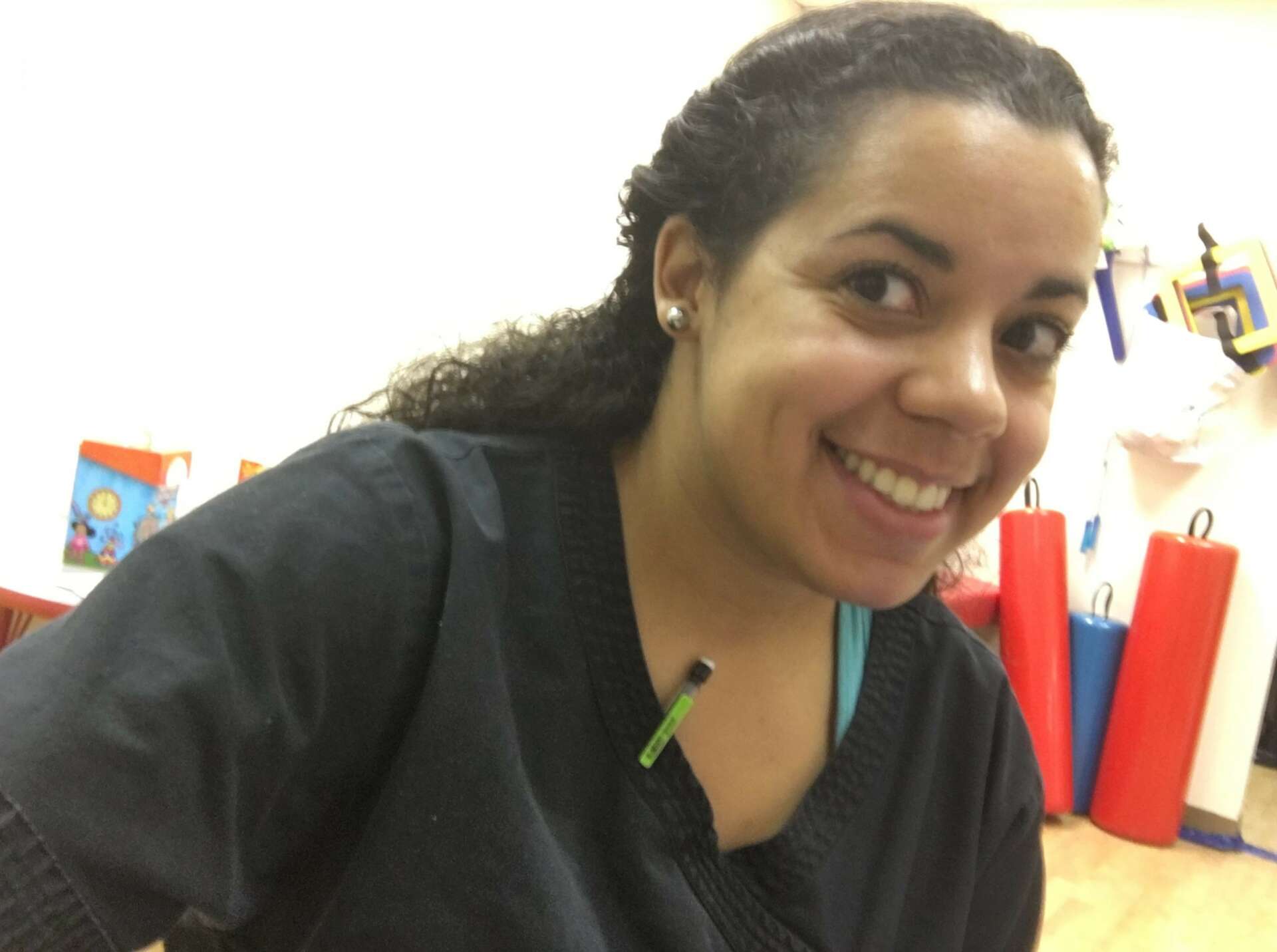
We caught up with the brilliant and insightful Jasmine Philpot-Slocum a few weeks ago and have shared our conversation below.
Jasmine, looking forward to hearing all of your stories today. Let’s kick things off with talking about how you serve the underserved, because in our view this is one of the most important things the small business community does for society – by serving those who the giant corporations ignore, small business helps create a more inclusive and just world for all of us.
It is so interesting that this is a topic. Years ago while in Graduate School, I presented on this very topic. It is truly a passion of mine to serve populations that most people deem “too difficult” or challenging. I love “special populations” (e.g. Autism, those with Syndromes, Intellectually Disabled, Emotionally Disturbed, etc.), those from diverse economic backgrounds, and other groups that are not considered “attractive” in my field. It truly makes a difference in the lives of those populations to have someone show up for them in a way that most will not. Maybe, just maybe, me being me and doing what I do has changed something in their life that helps them to operate at a higher level. That small step or thought can change the world. I consider what I am doing to be changing lives. I wear other hats as well, but maybe a separate article for that? ;)
Jasmine, love having you share your insights with us. Before we ask you more questions, maybe you can take a moment to introduce yourself to our readers who might have missed our earlier conversations?
Gifted Integrative Speech Therapy, LLC started out as a Private (Pediatric) Practice that offered speech therapy from birth to 21. Now, I am proud to say that we have added Occupational Therapy services to our practice as well. We service patients with a variety of syndromes and diagnoses that require direct, licensed therapeutic intervention.
Speech Therapy typically addresses areas like: Articulation/Phonology (saying sounds correctly), Language (understanding and expressing), Fluency (stuttering and cluttering), Executive Functioning (Daily Living and Memory), Functional Communication (limited or non-verbal), Aural Rehabilitation (hearing loss), Pragmatics (social use of language), and my favorite; Feeding/Swallowing/Oral Motor (any disorders, difficulties or complication thereof).
Occupational Therapy typically addresses fine and gross motor skills. Some areas include: Daily Living (zipping, buttoning, toileting, etc.), Sensory Integration (disordered and difficulties thereof), Range of Motion, Fine and Gross Motor, and Behavior Modeling.
I believe what sets us apart from other practices is the passion that we carry. I am most proud of what we all do which is change lives through various therapeutic practices. Imagine a person saying, “Happy Mother’s Day” at 6 years old for the first time, having words through a communication device when they previously had none, or going from a limited diet to enjoying foods. Our practice helps with all of these things. We connect families and improve the quality of life for our patients. My mantra is “I keep it really real with my families,” so that everyone is on the same page and knows it is a team effort.


Learning and unlearning are both critical parts of growth – can you share a story of a time when you had to unlearn a lesson?
Over the years I have learned that you cannot help everyone. I have always grown up thinking I should and can help everyone. I unlearned that quickly. Another lesson I also learned is that “all money is not good money.” I learned both of those around the same time.
I will just say the backstory on helping came from me doing a lot of services on “good faith” for people initially. I did not set boundaries and I was literally all over the place physically servicing patients. In the end, those people did not pay their bills and it was a loss for me though I went above and beyond to provide services. That’s when I learned to say, “No.” The truth is I cannot help everyone and learning that made me recognize when certain situations would drain or overextend me. I am very honest about what I can and cannot do now and it’s helped me move further.
The backstory on “all money is not good money” was that I worked for some unethical or money hungry people. Granted, this is my career and I do make money from my work, but that is not driving me. I could make money doing a lot of things, but I started my practice after working for greedy and unethical people. Some people made me question my sanity, others would have had me risk my license, and in all cases it provoked my character. I chose to start my practice to follow my passion and help others. The saying goes, “the money will come,” and it has, but it’s secondary.


What’s been the best source of new clients for you?
Honestly, “Word of Mouth.” I really have not done a lot of marketing. For that, I am thankful. All of our referrals come from state agencies, hospitals, other parents, schools, and other contracts we hold. Past families and clients are thankful and happy with the services we have provided and they tell other parents. Our name is shared in circles that we have not even been in. I try to remember to ask about who referred the families to me and I get different answers all the time. The amount of referrals we get is a true blessing, and I am thankful for the families that are part of GIST.
Contact Info:
- Website: www.giftedintegrativespeechtherapy.com
- Instagram: giftedintegrativespeechtherapy
- Facebook: Gifted Integrative Speech Therapy
- Linkedin: Gifted Integrative Speech Therapy (GIST)

